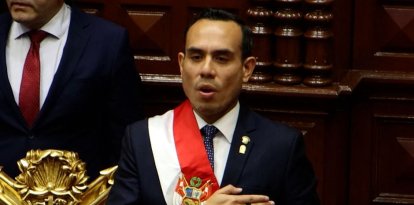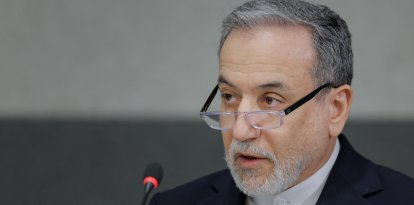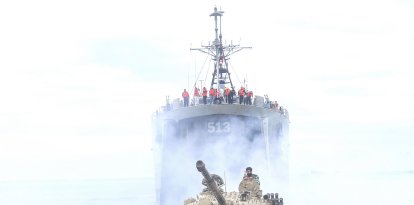Trump stopped Israeli military strike against Iran to preserve nuclear talks with Tehran
During a visit to Washington, the Republican leader informed Israeli Prime Minister Benjamin Netanyahu of his decision to cancel the planned military strike on Iran, which required U.S. support.

Donald Trump and Iran's Supreme Leader Ali Khamenei
The New York Times revealed in an article published Wednesday that U.S. President Donald Trump stopped an Israeli airstrike on Iran's nuclear facilities a few weeks ago, aiming to keep ongoing negotiations with Tehran on track. According to the report, several Trump administration officials—speaking on condition of anonymity—stated that the Republican leader informed Israeli Prime Minister Benjamin Netanyahu of the decision during his visit to Washington last week. The operation, which required U.S. support, was canceled to avoid derailing diplomatic efforts. During that same visit, Trump stood alongside Netanyahu in the Oval Office and publicly announced that his administration was formally initiating talks with the Iranian regime.
The Times explained that the Republican leader opted for a diplomatic approach with Iran after months of intense internal debate among his advisers over the most effective way to address Tehran's nuclear ambitions. While some members of his cabinet supported Israel’s proposed military action, the report noted that consensus eventually formed around diplomacy, as the Iranian regime had shown multiple signs of willingness to engage in negotiations.
Details about the operation
According to the report, the Israeli government had planned to carry out an airstrike on Iran’s nuclear facilities in May, anticipating both military and political support from the United States. Israeli officials expected that U.S. backing would help them withstand the likely backlash and reprisals not only from the Middle East but also from several Western nations. The primary goal of the operation was to significantly delay the Iranian regime’s ability to produce nuclear weapons by at least 12 months. However, The Times noted that President Trump was skeptical of endorsing the strike, questioning whether the limited and temporary setback to Iran’s nuclear capabilities was worth the risk of triggering broader regional instability.
At the time Israel proposed the operation to the Trump administration—which involved a large-scale bombing campaign designed to strain Iranian air defenses ahead of a sustained offensive—some senior U.S. officials expressed support. General Michael Kurilla and National Security Advisor Michael Waltz reportedly backed the plan and even discussed potential ways the United States could assist. However, according to The Times, other key figures persuaded President Trump to reject the proposal, warning it could backfire. Among those who advised caution were Vice President JD Vance, Director of National Intelligence Tulsi Gabbard and Defense Secretary Pete Hegseth.
Bad timing for Iran
In addition to multiple failed attempts to attack Israel since the war began, Iran’s proxy Hezbollah has been severely weakened by a sustained Israeli military campaign in recent months. Moreover, the collapse of Bashar al-Assad’s regime in Syria has dealt a major geopolitical blow to Tehran, as Syria had long served as a vital conduit for Iranian influence and support in the region.
























